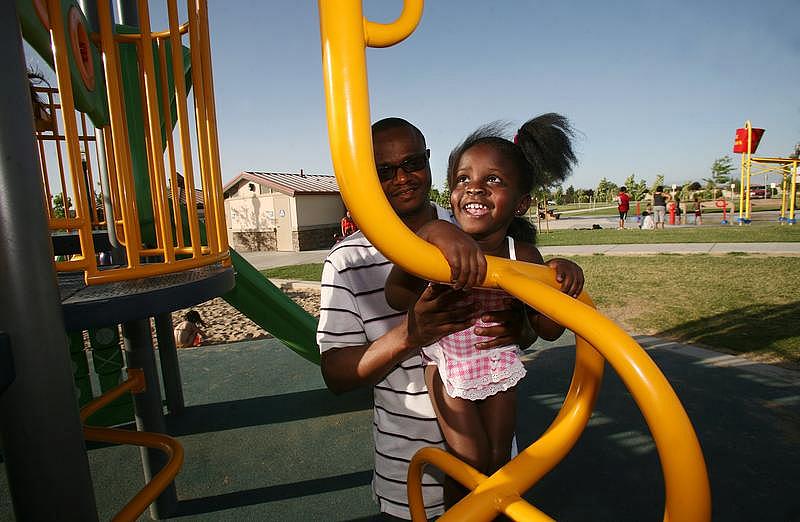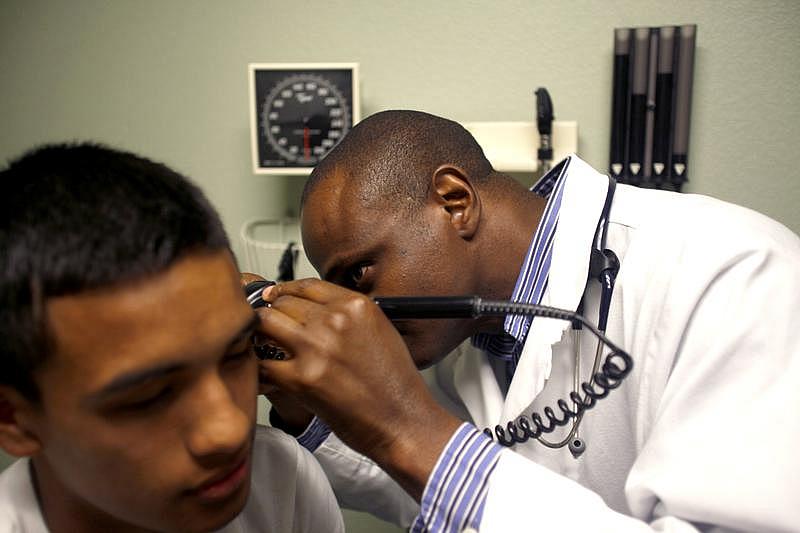Importing Doctors: Are we creating a foreign brain-drain?
Read why the United States imports so many foreign doctors. California fellow Kellie Schmitt completed a multi-piece series on the United States' reliance on foreign-doctors.
Part One: More than half of Kern physicians were foreign-schooled
Part Two: Are we creating a foreign brain-drain
Part Three: Pace of foreign-physician influx may slow
Part Four: KMC's multimillion dollar deal with Caribbean school marks part of controversial trend
Part Five: Concerns about the quality of Caribbean schools persist
Part Six: Many American students turn to Caribbean medical schools


An article in the peer-reviewed journal Human Resources for Health found that more than 5,000 doctors from sub-Saharan Africa practice in the United States. That migration has had "a significant negative" effect on the ratios of doctors to population in Africa.
About 86 percent of the Africans practicing in the U.S. come from Ghana, South Africa and Nigeria, according to the study.
In Kern County, about 40 physicians come from Africa, with about 15 from sub-Saharan countries.
One of those physicians is Dr. Sunday Irene, who grew up and attended medical school in Nigeria. Irene was drawn to the United States and its high level of medical expertise.
When Irene was a high school student in Southern Nigeria, the country experienced a doctor shortage and had to import foreign-trained professionals from Cuba or India. But by the time he finished medical school in the mid-1990s, his country had enough of its own doctors and Irene was hungry for more opportunity.
While Irene agrees there is a shortage of doctors in sub-Saharan Africa, he says it's more of a distribution problem. Big cities like Lagos have a plentiful physician workforce, but it's almost impossible to practice medicine in areas lacking electricity and water.
"If the doctors who left the shores of Africa did not do so, there would be no place for all of them to practice," he said.
Irene said he may retire back in Africa, but, until then, he's happy to embrace life in Kern County.
"When you're coming from Africa, Kern County is a very developed place," he said.
Jose Ramon Fernandez-Pena, director of the Welcome Back initiative, which helps integrate foreign-trained health professionals already in the United States, said American facilities should avoid actively recruiting those individuals in their home countries. If foreign doctors choose to apply for a U.S. slot, it's their free will.
"It's up to their conscience to tell if they betrayed their country," he said. "Did they have an obligation to stay in their country?"
That question does weigh on some of Kern's foreign doctors. Many interviewed for this series said they often think about their home countries, the families they left behind and the impact they could have had on their own underserved regions.
But, like Irene, foreign-trained doctors say the move to Kern County has ultimately been a satisfying end to a long journey.
"Here is where you have the best of everything," Irene said. "If you want to excel, there are more opportunities."
This article was originally published by The Bakersfield Californian.

